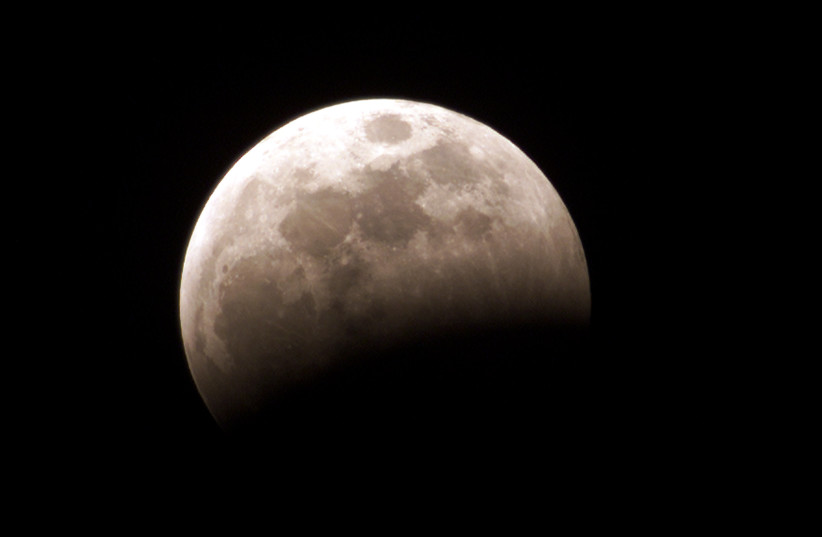A “blue supermoon” rose in the night sky over Israe land much of the world on Wednesday, August 30.
The expression, “once in a blue moon” has relevance in a real lunar phenomenon. Moreover, as the phrase suggests, they are indeed rare, and the lunar event will not be seen again for some years.
The name, though, is somewhat misleading as the blue moon is not actually blue. The moon will actually appear to have an orange hue.
There are actually two varieties of blue moons, according to LiveScience. The first type, a “calendar blue moon” occurs when two full moons occur within the same month. As a full moon appears every 29.5 days, although rare, it necessarily occurs every two or three years.
The second type is a "seasonal blue moon," which describes a thirteenth full moon in a year as opposed to the typical 12.

As there was a full moon on the first of the month, the blue moon to appear on Wednesday is of the former variety.
The coming blue moon, however, is not just a blue moon, it’s a super blue moon.
NASA describes a supermoon as a perigean full moon, that is “a full moon occurring near or at the time when the Moon is at its closest point in its orbit around Earth.”
The coming blue supermoon meets the criteria for both types of moon described.
How rare is a blue supermoon?
A separate NASA article from earlier this month highlights the rarity of these blue supermoons. It notes that the astronomical conditions that produce such moons occur, on average, only once a decade. On occasion, however, it can take up to two decades between blue supermoons.
Getting as near as 222,043 miles from Earth, the second August full moon will be the largest and brightest of the four supermoons of this year.
The next and final supermoon of 2023, the Harvest Moon, will rise on September 29.
